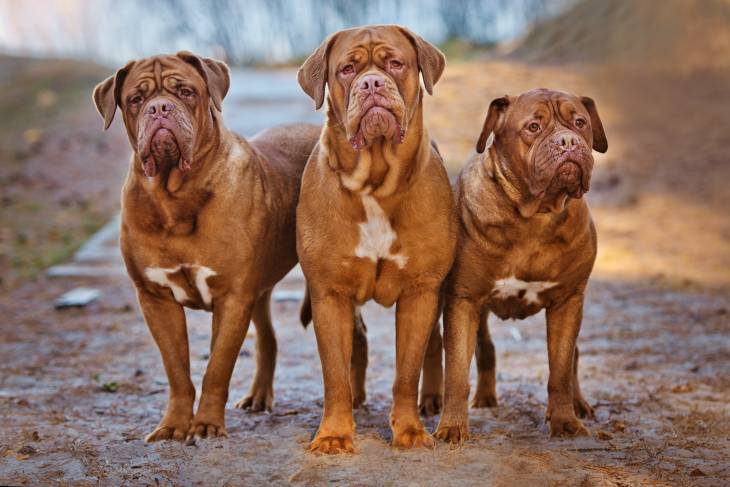Dogue de Bordeaux, a large breed of dog used in wars and for hunting since the early days before France became France. The Dogue de Bordeaux is an enormous and powerful breed that can weigh up to 110 pounds. A balanced diet and high-quality food are essential to their health.
This article will provide you with more information about the Dogue de Bordeaux’s diet, including how to feed it and what they should be fed.
Diets
The most important factor to consider when choosing dog food is the protein content. Protein should make up 25-27% in the diet of large breeds such as Bordeauxdog. This helps supply the amino acids that help develop body tissue and cell renewal.
Fats : Fish oil, which contains omega-3 fats is another nutrient that should be considered after the protein. This nutrient helps develop eyes, brains and provides energy to move. For them, 5% fat will be enough to keep their energy and health levels high.
Drink water. Water is essential to them due to their breathing issues and heatstroke. It is important that they drink plenty of water before being exposed to extreme temperatures or doing intense exercises. Clarify, keep a water bowl nearby them at all times during the day.

How Much To Feed Your Dogue de Bordeaux?
French Mastiffs are fed according to their weight, age and level of activity. Feed a new 4 times a day until they are 8 weeks of age. You don’t need to worry about feeding them at this time. Their mother will do it. If you are raising a pup that is separated, then it’s okay to feed them milk every now and again. Reduce the feeding to three times per day until they reach 2 months.
Limit their food intake to two meals a day, with snacks or treats between. Even though they may want to eat more, do not hesitate. An empty stomach could cause bloating or twisting. You should avoid cooked bones, and foods high in fat. Watch their weight and calorie intake as obesity can be a problem for these animals. Also, feeding them table scraps in moderation is beneficial.
Dog Food For Dogue de Bordeaux
You have a variety of options for what you can feed your dog, including kibbles, canned food, homemade meals, or raw foods. The master and the dog will determine which option is best. Your dog should get the proper nutrition no matter what they eat. Here are the top dog foods that you can feed to Bordeauxdog.
- Taste of the Wild High Prairie Formula
- Nom Nom Fresh Pet Food
- American Journey Beef & Sweet Potato Recipe
- True Acre Foods Beef & Vegetable Recipe
- The Wellness Complete Health Program for Large Breeds
Supplements For Dogue de Bordeaux
The benefits of supplements are many. They help boost vital nutrients within the body. The supplements also improve the coat, skin and digestion. If they get enough nutrition from their diet, supplements may not be necessary. Since the body already receives nutrients, adding additional ones can have a negative impact on their health.
- Glucosamine
- Probiotics
- Fish Oil
- Antioxidants
Human Food Dogue de Bordeaux Can and Cannot Eat
Dogs’ diets differ from human diets, and vice versa. The food that we humans eat is safe for us, but toxic to dogs. So, be sure to give your dog food from your own plate. Below is a list of foods that are good for and bad for dogs.
Can Eat
- Bread
- Cheese
- Corn
- Cake without Chocolate
- Eggs
- Meat
- Fish
- Honey
- Peanut Butter
- Popcorn
Cannot Eat
- Cinnamon
- Chocolate
- Ice-cream
- Garlic
- Almond
- Onion
- Grapes and Raisins
- Avacado
- Coffee
Why Is Your Dogue de Bordeaux Not Eating?
Dogs go through a number of challenges as they grow up. Dogs grow up and go through many challenges. Below are some of the main reasons why your dog is not eating.
Health Reasons
- The dog is displaying signs of a digestive problem (can be observed eating grass).
- Infections caused by worms and bacteria
- Gastrointestinal Issues
- You can also lose your hearing and vision
- Urinary tract infection
- Dental problem
Behavior Reasons
- Changes in the environment
- Separation Anxiety
- Stress
- Changes in normal routine
- Food that you dislike the taste